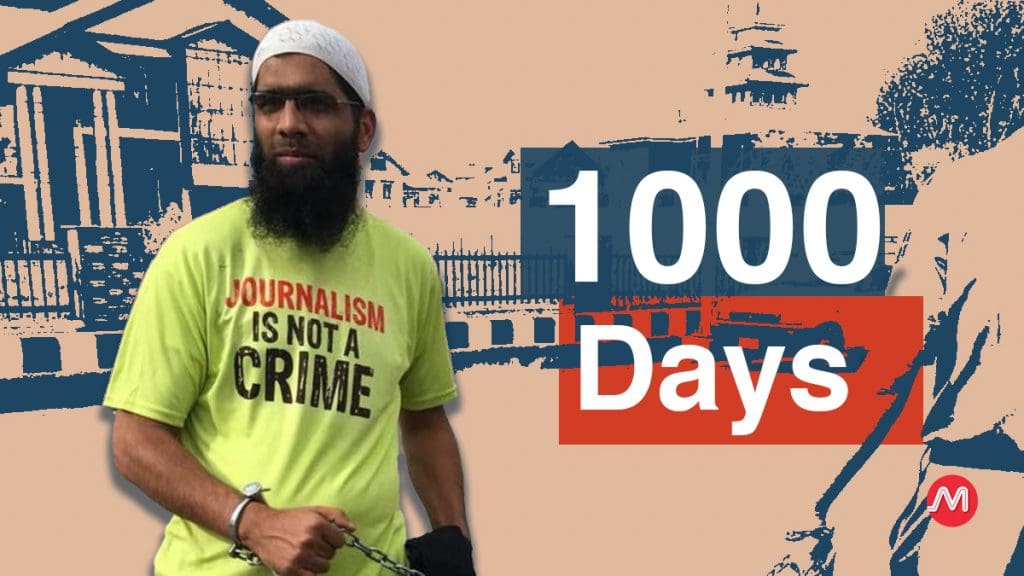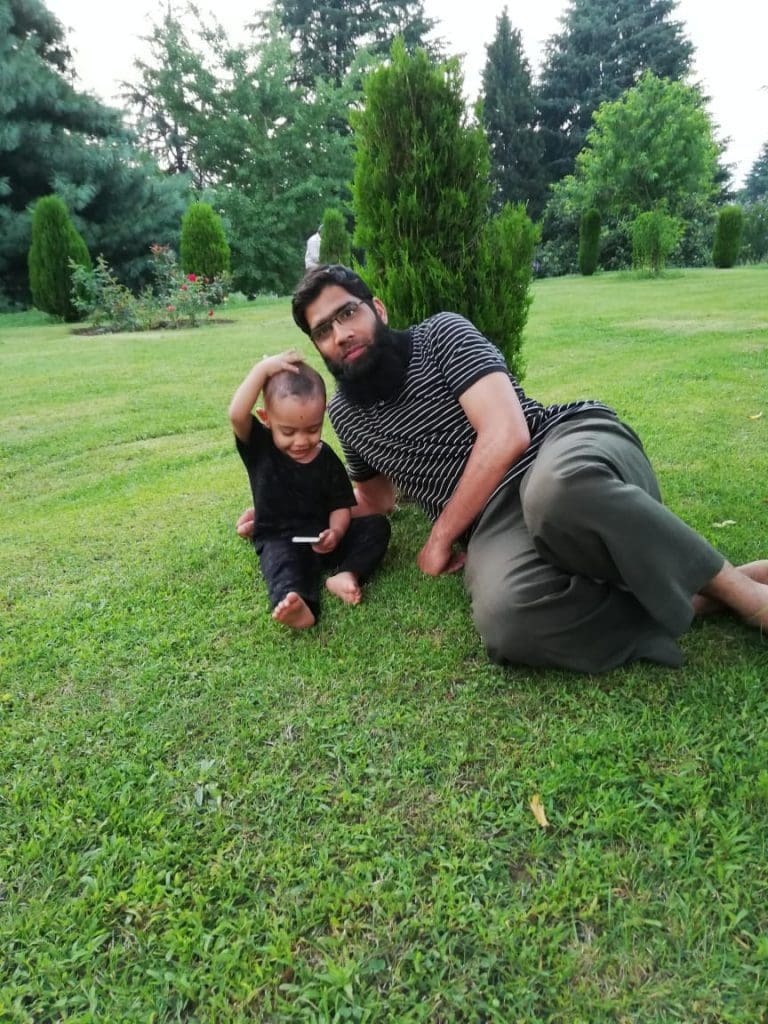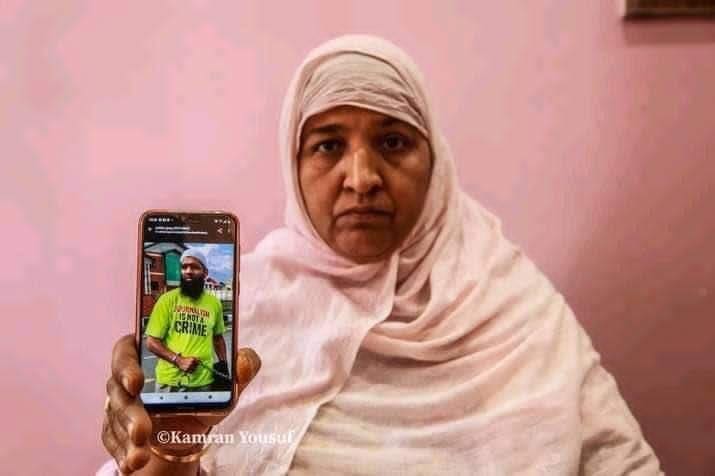
Calls are growing for the immediate release of Kashmiri journalist Aasif Sultan, who on May 25th (Tuesday) completed 1000 days in prison. Journalists and activists in Kashmir and globally have urged the authorities to free Sultan who they say is being punished for doing journalism.
The Committee to Protect Journalists (CPJ) on Sunday demanded the immediate release of the journalist. “He [Sultan] has been repeatedly denied bail. Journalist Aasif Sultan’s trial began in June 2019 and has been moving slowly,” they tweeted.
The incarceration of Sultan has taken a heavy toll on his family who are growing frustrated over ‘punishment for no crime’.
“I don’t discuss Aasif with my parents. Talking about it just makes us feel more helpless,” says his brother Omer Sultan.
Their father Mohammad Sultan is recovering from heart surgery that he underwent in March. His mother is a hypertension patient. Sultan who married in the year 2016 has a three-year-old daughter. At the time of his arrest in August 2018, his daughter was only six months old.
Sultan was detained three years ago by the police in a night raid at his home on charges of ‘harbouring militants’ and booked under the draconian Unlawful Activities Prevention Act (UAPA). He was named in a case about a gunfight between police and militants that took place in the Batmaloo neighbourhood of Srinagar city where Sultan lives.
Weeks before his arrest, however, Sultan had penned a story profiling Kashmiri militant Burhan Wani who was killed in 2016 in a gunfight with the Indian army and had since become a symbol of protests against the government in the Kashmir region.
The 34-year-old journalist covered politics and human rights for Kashmir Narrator, a monthly news magazine published in Srinagar. The publication, however, shut down in April 2019.
Founder and editor of Kashmir Narrator Showkat Motta questioned the extended delay in Aasif’s case. “Why would it take 1000 days for the so-called evidence to be established?” he asks.
Last year, CPJ along with 400 journalists had written a letter to Prime Minister Narendra Modi demanding his immediate release. The group had said: “Interviewing alleged militants or having sources that are critical of the government is within the scope of a journalist’s job and does not implicate them in any crime. Events in Kashmir are of public interest, and covering them is a public service, not a criminal act.”


In May this year, the Committee for Protection of Journalists had written a letter to the European Commission and the European Council to urge Indian authorities for Sultan’s release in view of the surging infection and deaths due to the pandemic.
Sultan’s lawyer Abdullah Pandit told Maktoob that there are chances that Sultan will be released soon. “Hopefully, we can secure his release in coming weeks,” Pandit said. According to him, the delay has been ‘natural’, due to the onset of the pandemic and the abrogation of article 370 in Kashmir which led to lockdowns and thus affected the functioning of courts.


Sultan was awarded the Press Freedom Award by the American National Press Club for his journalism in August 2019, while he remained in detention.
The National Press Club America had announced that it was giving its annual John Aubuchon Press Freedom Award year “to a journalist in Kashmir jailed for nearly a year for his reporting”.
Sultan also featured in TIME Magazine’s ’10 Most Urgent’ cases of threat to press freedom around the world, last year.
In February, this year, the Clooney Foundation for Justice had said that they will monitor Asif’s case closely through its Trial Watch programme. In a statement, which came a day after a court hearing in Srinagar, regarding Sultan’s bail application.
“The Clooney Foundation for Justice calls on the authorities to ensure that Sultan’s bail hearing is conducted in accordance with international human rights law and any proceedings against him respect his human rights, including his right to a fair trial and to freedom of expression.”
Crackdown on journalists in Kashmir
The Kashmir Working Journalists Association and the Kashmir Journalist Association demanded his release from “illegal custody, and action against police officials”. They also alleged that security and intelligence agencies “have been trying their best to police media in Kashmir and harassing media organisations and journalists has been a routine”
Similar instances of Kashmiri journalists being targeted and incriminated have been reported especially after August 2019 when articles 370 and 35A were revoked, stripping the region from its autonomous status.
Masrat Zahra, a freelance photojournalist, and Gowhar Geelani, an independent journalist were booked under the UAPA. The National Investigation Agency (NIA) raided the office of Greater Kashmir newspaper and the residence of AFP news agency’s journalist, Parvaiz Bukhari in October 2020. This followed a week after the office of the oldest English Daily of the region, Kashmir Times, was sealed. In September 2020, journalist Auqib Javeed said that he was slapped at the police station in Srinagar after summoned for doing a story on intimidation of Twitter users by the cyber cell of the police.
Despite criticism, the attacks on Kashmiri journalists continue. Media Watchdogs say it has a chilling effect on press freedom in the region. India’s rank in the World press freedom index has slipped down significantly in recent years under the Modi government which has been accused of cracking down on criticism and free media.



